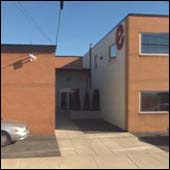 The new owners of Ellman International Inc., a New Jersey supplier of medical devices, agreed to pay the Office of Foreign Assets Control (“OFAC”) $191,700 to settle charges that the prior owners of the company exported medical devices to Iran and hired a physician in Iran without authorization from OFAC. Allegedly the medical devices were shipped to Iran through a middleman in Dubai with the knowledge and participation of senior management of the old owners. When the new owners of Ellman discovered the violations after the acquisition, they voluntarily disclosed the violations to OFAC.
The new owners of Ellman International Inc., a New Jersey supplier of medical devices, agreed to pay the Office of Foreign Assets Control (“OFAC”) $191,700 to settle charges that the prior owners of the company exported medical devices to Iran and hired a physician in Iran without authorization from OFAC. Allegedly the medical devices were shipped to Iran through a middleman in Dubai with the knowledge and participation of senior management of the old owners. When the new owners of Ellman discovered the violations after the acquisition, they voluntarily disclosed the violations to OFAC.
Sadly, at least for the new owners, OFAC held that the voluntary disclosure wasn’t a voluntary disclosure under OFAC’s Enforcement Guidelines. In holding that the voluntary disclosure wasn’t a voluntary disclosure, OFAC had this to say:
[T]he submission was determined not to be a voluntary disclosure as defined by OFAC’s Economic Sanctions Enforcement Guidelines, 31 C.F.R. part 501, App. A (“the Enforcement Guidelinesâ€). OFAC had previously been notified of a rejected transaction between Ellman and a customer located in Iran but did not at that time learn the full scope of the activity because Ellman’s prior owners failed to properly respond to OFAC’s inquiry.
Now, of course, there is a good argument that the one rejected transaction wasn’t eligible for treatment as a voluntary disclosure because OFAC had already been informed of it by the rejecting third party. But it seems more of a stretch to say that everything else in the new management disclosure wasn’t a voluntary disclosure simply because prior management did not respond to an earlier OFAC inquiry on the rejected transaction. Let’s look at the actual language of the Enforcement Guidelines which, shocking as that  may sound, should control here:
Notification to OFAC of an apparent violation is not a voluntary self-disclosure if: a third party is required to and does notify OFAC of the apparent violation or a substantially similar apparent violation because a transaction was blocked or rejected by that third party (regardless of when OFAC receives such notice from the third party and regardless of whether the Subject Person was aware of the third party’s disclosure); the disclosure includes false or misleading information; the disclosure (when considered along with supplemental information provided by the Subject Person) is materially incomplete; the disclosure is not self-initiated (including when the disclosure results from a suggestion or order of a federal or state agency or official); or, when the Subject Person is an entity, the disclosure is made by an individual in a Subject Person entity without the authorization of the entity’s senior management.
Nope. Nothing there at all about failing to respond to an OFAC inquiry as forever barring any future disclosure from being given credit as a voluntary disclosure.
Of course, the moral here is not just that OFAC often doesn’t pay attention to its own regulations. The more important moral, because it’s something that you can do something about, is that acquiring parties need to conduct adequate due diligence and discover export violations before the deal closes, i.e., before it’s too late. Perhaps the new owners did conduct such due diligence, in which case it is likely that there is a hold-back on the purchase price that will be used to pay this fine. But if they didn’t, that was an expensive mistake.
 Permalink
Permalink
Copyright © 2013 Clif Burns. All Rights Reserved.
(No republication, syndication or use permitted without my consent.)

 Posted by
Posted by  Category:
Category: 

